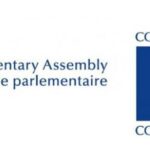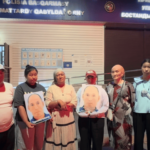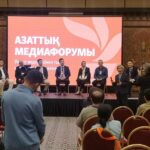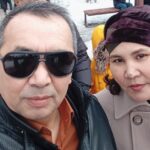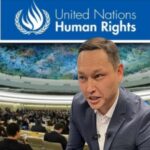This week the EU will hold a new round of its human rights dialogue with
In a briefing paper for the upcoming meeting, which is scheduled to take place in Astana on 27 November, the two organizations highlight the following issues they believe the EU should raise with the Kazakhstani government:
· The failure to ensure an impartial and thorough investigation of the December 2011 Zhanaozen events. During these events, more than a dozen people were killed and many more wounded as police used arms to put down riots that broke out following a months-long peaceful oil worker strike, which the authorities had sought to stifle. A few police officers have been convicted for “abuse of power,” but other officials who used excessive force or gave orders about it have not been held accountable.
· The imprisonment of individuals accused of involvement in the Zhanaozen riots following an unfair trial, whose credibility was undermined by the use of questionable witness testimony and torture allegations. Among those who remain in prison is strike movement leader Roza Tuletaeva, who was given the longest sentence. This reinforced the impression that she and others were punished for their role in the peaceful labour protest that preceded the Zhanaozen events. There are concerns that she has not received adequate treatment for her health problems in prison.
· The renewed attack on the political opposition, which the authorities have sought to blame for the Zhanaozen riots. An emblematic case is that of opposition leader Vladimir Kozlov who continues to serve a 7.5 year sentence on politically motivated charges, with the Supreme Court having refused to review his case, concluding that there were “no grounds” to do so. The Kazakhstani authorities have also actively pursued the extradition of Europe-based exiled opponents, who are at risk of unfair legal proceedings and ill-treatment if returned. UN experts have depicted as an extraordinary rendition the May 2013 return from
· The closure of a number of major opposition media outlets for alleged “extremist” propaganda in late 2012 and the continued harassment of media and journalists who are critical of authorities, e.g. through the suspension of the activities of media for minor violations and punitive defamation suits brought by government officials. There have also been new cases of blocking of websites that post information challenging the official line.
· The continued pattern of physical attacks against journalists that as a rule go unpunished. A rare exception to the widespread impunity for such attacks was the conviction and imprisonment of the perpetrators of the brutal 2012 attack on journalist Lukpan Akhmedyarov this summer. Those who ordered the attack are, however, yet to be brought to justice.
· Cases of persecution of civil society activists who are engaged in efforts to promote human rights, justice and accountability. Lawyer Zinaida Mukhortova was subjected to a new episode of forced psychiatric care this autumn and remains at risk of further such treatment in a protracted saga that began after she protested the actions of a ruling party member. Absurd charges of inciting religious discord have been levelled against anti-corruption campaigner Alexander Kharlamov, who also has had to undergo forcible psychiatric examinations. The case against him is still pending. Vadim Kuramshin is serving a 12-year prison sentence that appears to be retaliation for his defence of prisoners’ rights. He is held in a facility where he has reported about abuse, which reinforces concerns about his safety and well-being.
· Continued restrictions of the right to freedom of assembly, in law and in practice. No large opposition rallies have taken place since mid-2012 as a result of the government’s reinforced attack on the opposition, while disproportionate and unlawful law enforcement responses to other assemblies have continued to be documented, such as detention, administrative sanctions, intimidation and alleged ill-treatment targeting participants.
The briefing paper by the two organizations also provides recommendations for steps the EU should request the Kazakhstani authorities to take to address the concerns described. As emphasized by the NGO community, it is essential that the EU pushes for the implementation of specific progress steps to ensure that its human rights engagement with
The full version of the briefing paper is available here.
Background:
With the adoption of its 2007
The new round of the EU’s human rights dialogue with







